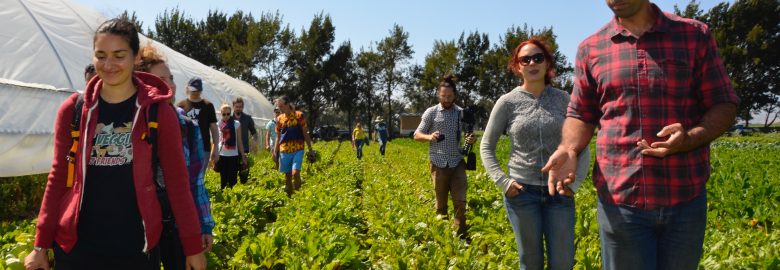Veganic Agriculture
Mapping Veganic Farms in North America
Vegan Organic Agriculture
Veganic agriculture is organic agriculture that is free from farmed animal inputs. While organic agriculture avoids use of chemical pesticides and fertilizers and GMOs, veganic farming additionally avoids farmed animal byproducts including manure, fish emulsion, feather meal, blood meal, and bone meal. Instead, farmers enhance soil fertility through the use of methods and practices such as plant-based composts and green manures.


Veganic farming constitutes a response to numerous animal rights, environmental, and health concerns connected to animal agriculture. In rejecting the use of farmed animal wastes, veganic growing practices delink plant farming from the systematic exploitation of animals for food. Most of the animal waste used for soil fertility in organic agriculture is derived from factory farm operations, which are substantial greenhouse gas producers; veganic agriculture avoids directly subsidizing this climate-impactful industry. And, antibiotics that may still be present in trace amounts in farmed animal wastes are not introduced to veganic farm fields.

Mapping Veganic Farms in North America
Veganic farms can be found around the world, but until today, finding them required detective work. Thanks to the work of Professor Mona Seymour at Loyola Marymount University, we are excited to share a map of self-identified veganic farms in North America. The map also includes farms that identify with a method that is veganic in its nature. For the purposes of this mapping project, veganic is defined as growing organically and without inputs from farmed (or formerly farmed) or exploited animals.
All farms listed here have commercial, charity, educational, or research components (on top of any subsistence function that the farm may have) – they are farms that bring veganic produce or knowledge to a broader community. These farms grow vegetables, fruits, grains, and other food items; the map does not include cannabis farms. Some of the farms on this map are not entirely vegan but might be featured because they exclusively use veganic methods in some of their fields. Click on the dots for details about each farm.


